Kalmar, Grant Park Orchestra make a gripping event out of Shostakovich’s tragic Eighth
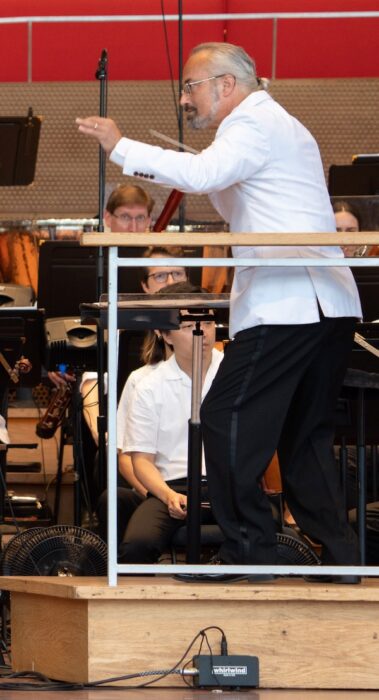
It’s not all summer fun and games at Chicago’s teeming lakefront.
This weekend Carlos Kalmar and the Grant Park Orchestra presented a rare performance of one of Dmitri Shostakovich’s darkest symphonies, No. 8 in C minor at the Pritzker Pavilion in Millennium Park.
The war-torn masterpiece drew a performance of searing intensity from the principal conductor and his indefatigable ensemble at Friday’s Grant Park Music Festival concert. A repetition is scheduled for Saturday night.
If his posthumously published memoirs are to be believed, Shostakovich regarded his Eighth Symphony as a requiem not only for the Russian victims of the Great Patriotic War (as the Second World War was known in the Soviet Union), but also for countrymen who suffered and perished during the prewar Stalinist terror.
Written in 1943, this hour-long essay shows us the human spirit brutally ripped asunder, only to emerge from the carnage in a kind of numbed resignation. The pale, drawn-out resolution of the final movement leaves us with precious little consolation after the cataclysm that has gone before—indeed, an ominous question mark seems to loom over the deceptively calm close: Peace, what peace?
Shostakovich would, of course, live to fight another day, giving the world seven more symphonies, yet none quite as despairing as the deeply personal Eighth. It’s not hard to imagine the circumstances that inspired its composition haunting him—exacerbated by his chronic ill health—until the very end of his life, in 1975.
Kalmar gave the Grant Park premiere of Symphony No. 8 in 2001, and the work has been his festival preserve ever since. He knows what this great musical testament is all about and, through his ability to instill that identification in his able musicians, brought the experience vividly alive to audience members. No effort was made to prettify a symphony Shostakovich meant to be a wrenching punch to the solar plexus.
“Brace yourselves,” the conductor warned the relatively sparse audience, before launching into what turned out to be an absolutely gripping account.
Taut and steady, his interpretation moved across a wide dynamic spectrum, the quieter pages bothered but not defeated by the ambient noises of a busy urban lakefront on a balmy August evening.
Kalmar tightened tensions with a firm hand throughout the massive opening Adagio, its grim discourse set off by an eloquent English horn solo, the first of several fine individual contributions throughout the Shostakovich. The Grant Park brasses displayed their full-throated mettle as they dispatched Shostakovich’s nasty parody of a Soviet victory march. Piercing piccolo and flutes accentuated the mechanistic brutality of the Allegretto movement.
With the moto perpetuo third movement, you had the sense of a menacing wartime juggernaut held under firm control. Here, as elsewhere, the orchestra players rose to the gnarly technical and musical difficulties as if the Eighth were as much standard fare for them as Beethoven or Brahms: You could read the concentration on their faces as much as hear it in their razor-sharp ensemble playing.
Kalmar had them seguing deftly from the mournful string threnody of the Largo into the slow unwinding of the finale. It’s no mean feat to make Shostakovich’s subtle, indeed magical, modulation at the bassoon solo feel inevitable, but he and the Grant Parkers pulled it off.
Their Shostakovich was the festival doing what it does best: shedding light on corners of the symphonic repertory. One hopes more audience members will avail themselves of this rare opportunity Saturday night.
Kalmar coupled the Shostakovich with another important score by the other great Russian composer who worked under Stalin’s thumb: the Violin Concerto No. 2 in G minor by Sergei Prokofiev. The winning soloist was the accomplished German violinist Augustin Hadelich, fresh from having performed Alban Berg’s Violin Concerto just three nights earlier with the Vienna Philharmonic at the Salzburg Festival.
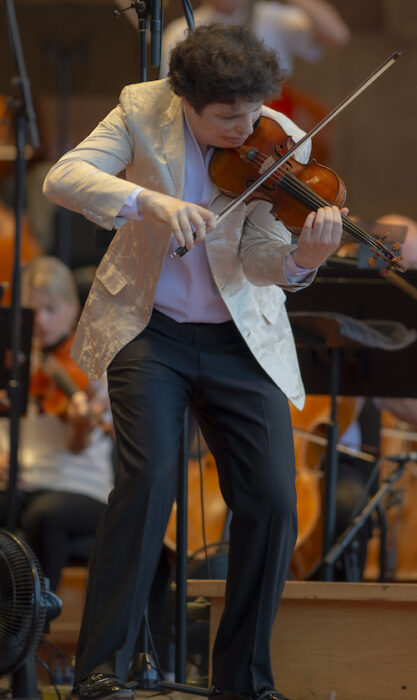
And fresh his Prokofiev felt on Friday night. The sensuous warmth of his lyrical playing, aided by a fast vibrato, was matched by the vivacious energy, rhythmic bite and firm expressive commitment he brought to the more brilliant pages. Millennium Park’s electronic sound enhancement system smiled on the golden tone Hadelich drew from the 1744 “Leduc, ex Szeryng” Guarneri violin, on loan from the Tarisio Trust. Kalmar’s finely supportive accompaniment found the orchestra in synch with the soloist’s take-no-prisoners interpretation every inch of the way.
After such a performance, an encore was mandatory. Hadelich offered his own solo arrangement—at once suave and spicy—of the Argentinian tango master Carlos Gardel’s song Por una Cabeza.
The program will be repeated at 7:30 p.m. Saturday at the Jay Pritzker Pavilion, Millennium Park. gpmf.org
Posted in Performances
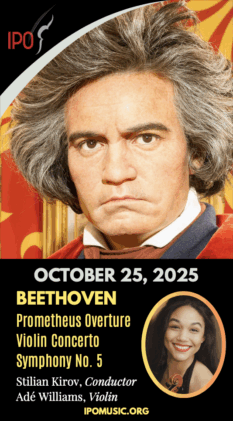
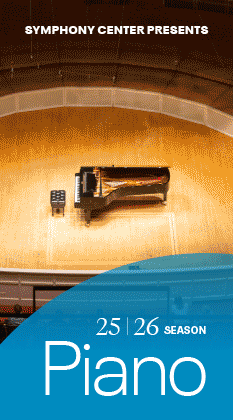
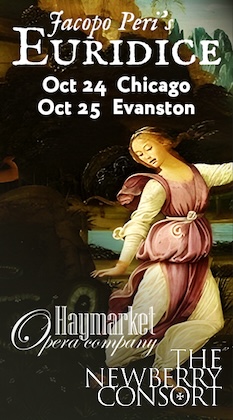
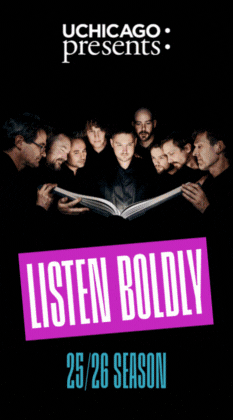
Posted Aug 12, 2023 at 6:49 pm by CA
Thank you for covering this- was a really beefy concert and fun to think about being in Salzburg with the Wieners one night and in Grant Park a few nights later. I wonder if the emergency vehicle sirens in Austria have become as obnoxious as ours.
Posted Aug 13, 2023 at 6:07 am by Chris
Nice to see your byline, JVR. Enjoyed your review.
Posted Aug 13, 2023 at 10:53 am by Geri Tauber
Great review! We were there for Saturday’s performance. The final movement was accompanied by the sounds of playing children somewhere on the lawn, and for us, that blended hope into the final notes. A wonderful experience!
Posted Aug 13, 2023 at 11:59 am by orion
Does anyone know the name of the piece Augustin played as an encore on Saturday?